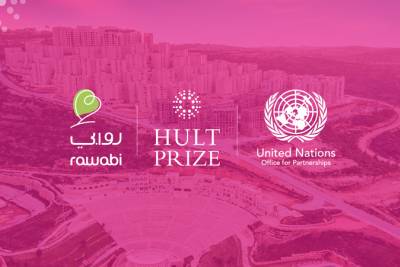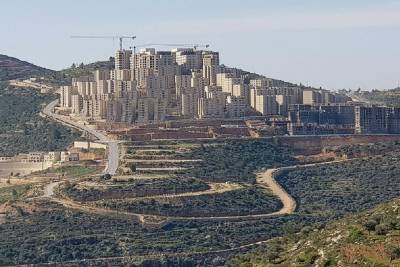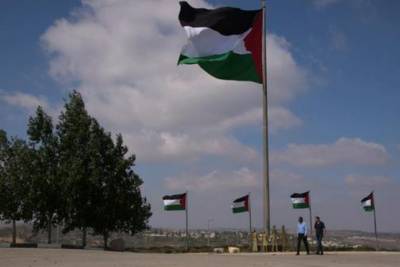The new town of Palestine is more attractive, luxurious
PERMATA - RAWABI, Palestinian Territories - With its wide-ranging ambience, a splendid shopping mall and a newly built Roman-style amphitheater, the new town of Rawabi, Palestine is a culmination of dreams for decades for developers Bashar al-Masri.
The Palestinian-American businessman has been trying to prevent Israel's challenge, with the construction of US $ 1.4 billion worth of real estate in the West Bank to reality - but now he hopes it will be a 'traffic light' in his state of affairs.
So far only about 3,000 people live in the yellow bar tower blocks built in the barren hills north of Ramallah almost a decade ago. It is the first city to be built and planned by Palestinians in the region.
Construction is still ongoing and some of its roads are still in a state of solitude, but hope it will attract 40,000 people in the residential city.
"Rawabi, in the past four or five months, has become a destination for all Palestinians," said Masri, 56, while attending one of the cafes in the city's new shopping center.

Developers have made empty hillside areas to a city filled with interesting So far only 3,000 people live in the yellow bar tower blocks in the new town of Rawabi. - AFP

So far only 3,000 people live in the yellow bar tower blocks in the new town of Rawabi. - AFP

The Rawabi Project also includes housing construction for at least 25,000 residents and may reach up to 40,000 residents. - AFP
"Every month, at least 100,000 Palestinians visit and are impressed."
Symmetrical housing and intensive planning at Rawabi - which means the hills in its Arabic language - have been said to be part of a resemblance to Israel's settlement where most Palestinians are not allowed to visit it, compared to other cities in occupied territories.
It also built an 15,000-seat extreme sports amphitheater and amphitheater, accompanied by giant pictures of Arab and Western entertainment stars, while a cinema would also be built.
The city's luxury design and facilities have sparked criticism as it will only meet the demands of the elite and is not reachable for poorer areas where unemployment is widespread.
But Masri insisted that there was a demand and that the Palestinians themselves would determine whether the project would succeed.
"I do not know who decides what the Palestinians want. Is the conquest? World? We will decide what we want and not all of us who want the same thing to happen, "he said.
"Palestinians are entitled to a better life. We cannot be repressed because we live under conquering."

The luxury facilities there include an amphitheater with a capacity of 15,000 seats, which have sparked criticism and are said to be the only elite capable of meeting the place. - AFP
For Palestinians who want to see it, the city offers a vision of future lives in their turbulent territory.
Saed Abu Fkheida and his wife are shopping at international branded stores such as Max Mara, Juicy Couture, Armani Jeans and Lacoste at the Q Center shopping center, built in other cities with the help of Qatar.
While most shops have not been fully charged within a few six months after the shopping complex was opened, he was so impressed with the facilities available and unlike in other areas of the West Bank.
"Everything is available in one place. There are clothes, toys, "he said. "In Ramallah, you need to visit several places to find what you are looking for."
The first resident who has moved to Rawabi is in 2015. The price of the flats there is worth from US $ 70,000 to US $ 180,000.
Those who are fortunate will definitely buy the place - mostly from Palestinians working in the Gulf states and the Israeli Arabs - and say that they now feel at home.
Fatimah Nazzal admits that the development can be felt when she moves with her husband, Iyad and her three daughters after returning from Saudi Arabia - but the family now says that the standard of living is in line with what they have experienced abroad.
To view original article, Click Here.



